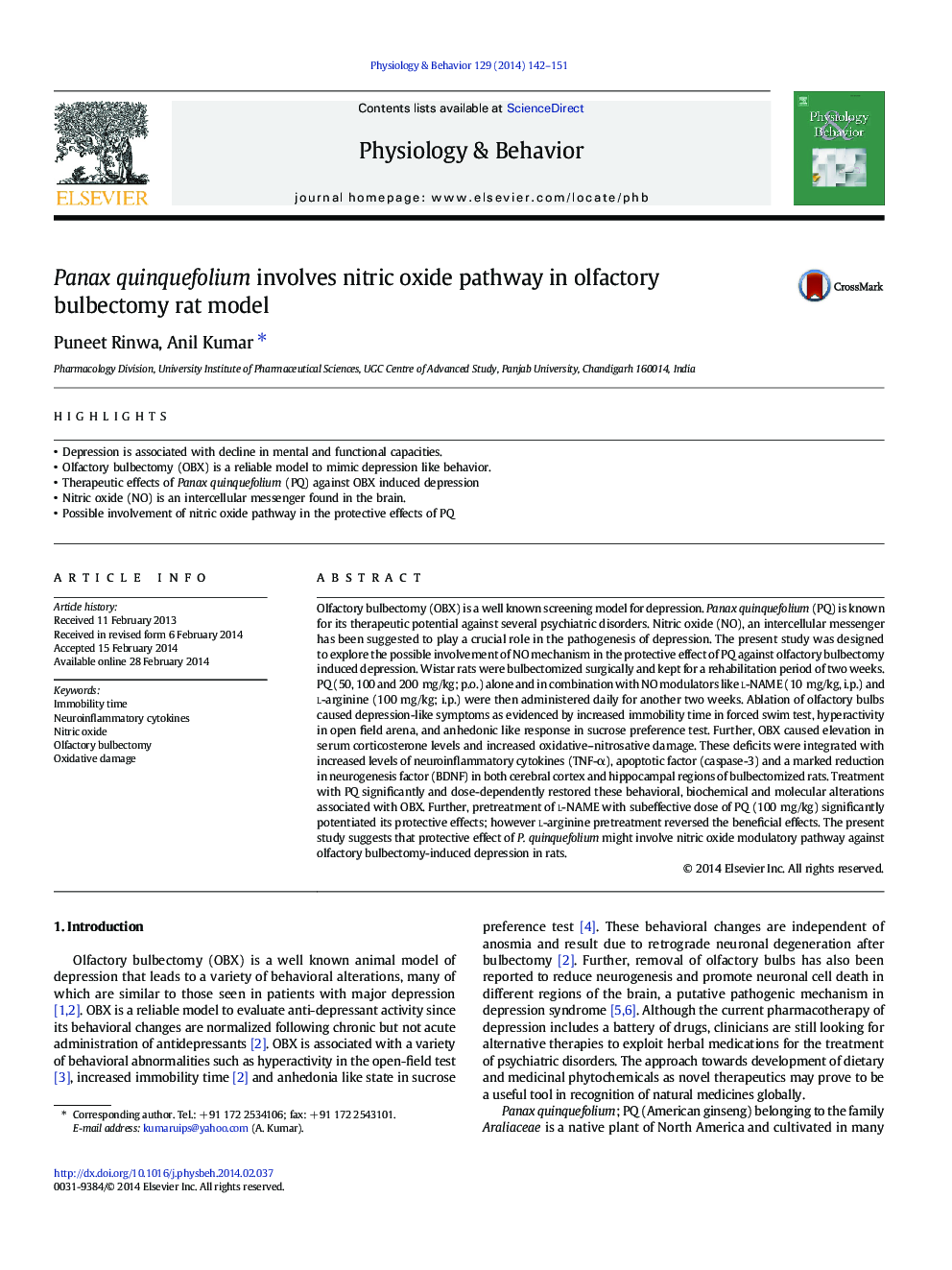| Article ID | Journal | Published Year | Pages | File Type |
|---|---|---|---|---|
| 5924280 | Physiology & Behavior | 2014 | 10 Pages |
â¢Depression is associated with decline in mental and functional capacities.â¢Olfactory bulbectomy (OBX) is a reliable model to mimic depression like behavior.â¢Therapeutic effects of Panax quinquefolium (PQ) against OBX induced depressionâ¢Nitric oxide (NO) is an intercellular messenger found in the brain.â¢Possible involvement of nitric oxide pathway in the protective effects of PQ
Olfactory bulbectomy (OBX) is a well known screening model for depression. Panax quinquefolium (PQ) is known for its therapeutic potential against several psychiatric disorders. Nitric oxide (NO), an intercellular messenger has been suggested to play a crucial role in the pathogenesis of depression. The present study was designed to explore the possible involvement of NO mechanism in the protective effect of PQ against olfactory bulbectomy induced depression. Wistar rats were bulbectomized surgically and kept for a rehabilitation period of two weeks. PQ (50, 100 and 200 mg/kg; p.o.) alone and in combination with NO modulators like l-NAME (10 mg/kg, i.p.) and l-arginine (100 mg/kg; i.p.) were then administered daily for another two weeks. Ablation of olfactory bulbs caused depression-like symptoms as evidenced by increased immobility time in forced swim test, hyperactivity in open field arena, and anhedonic like response in sucrose preference test. Further, OBX caused elevation in serum corticosterone levels and increased oxidative-nitrosative damage. These deficits were integrated with increased levels of neuroinflammatory cytokines (TNF-α), apoptotic factor (caspase-3) and a marked reduction in neurogenesis factor (BDNF) in both cerebral cortex and hippocampal regions of bulbectomized rats. Treatment with PQ significantly and dose-dependently restored these behavioral, biochemical and molecular alterations associated with OBX. Further, pretreatment of l-NAME with subeffective dose of PQ (100 mg/kg) significantly potentiated its protective effects; however l-arginine pretreatment reversed the beneficial effects. The present study suggests that protective effect of P. quinquefolium might involve nitric oxide modulatory pathway against olfactory bulbectomy-induced depression in rats.
